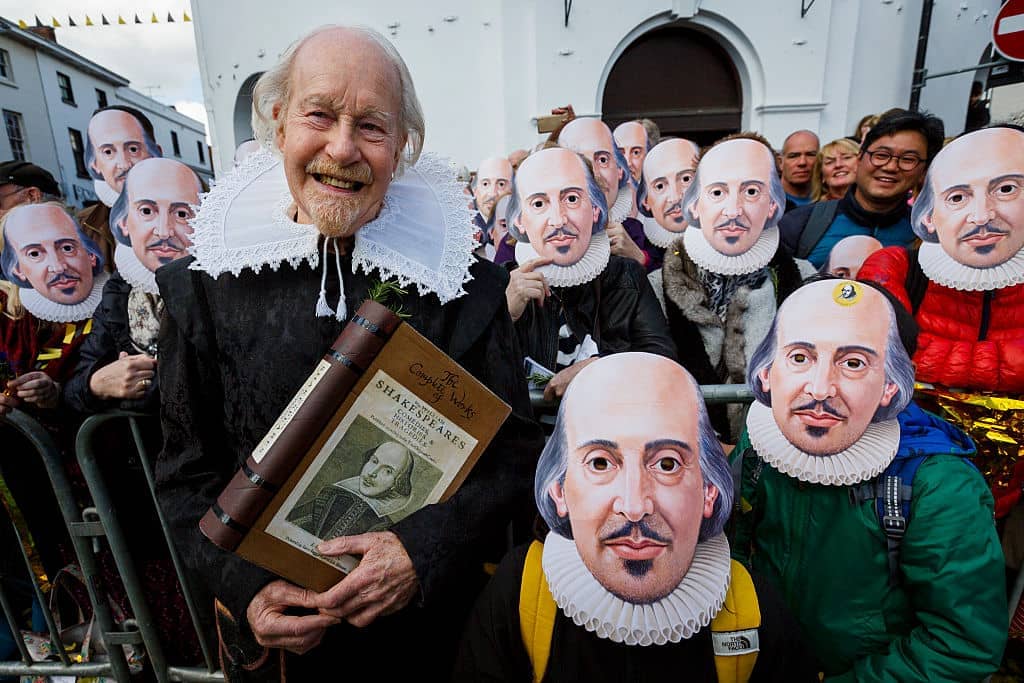Shakespeare’s Globe has a new wheeze to popularise its shows. The latest production, Henry VIII, is supported by a seminar about racism in this late play which the Bard co-wrote with John Fletcher. The online event, hosted by the Globe’s Dr Will Tosh, features dramatist-in-residence, Hannah Khalil, and Mira Kafantaris, a critical race theorist from the US. Both these experts proclaim their status as migrants and they examine Shakespeare through the lens of racist exploitation. At first glance it seems tricky to link racism with Henry VIII who was born four years before Columbus sailed for the Caribbean. But racism is everywhere, it seems.
‘Anne Boleyn’, explains Kafantaris, ‘was foreign born, raised in a French court, and our reading of her conduct and manner is very much a racialised one.’ She asks us to study ‘colour coding’ and to read up on theories that explore the ‘racialisation of Anne Boleyn as non-white.’
Sex trafficking is another hot topic. The literary experts regard Catherine of Aragon, Henry’s first wife, as a kind of Hispanic call-girl who was smuggled across the Channel by her abuser. Kafantaris talks about ‘the slippage between a queen as a monarch and a queen as a sex-worker whose sexuality is transgressive.’
Khalil points out that Shakespeare portrays Catherine as a powerful matriarch whose emotive speeches, ‘get the audience cheering for her’. And Dr Tosh says Catherine was considered a ‘peach of a role’ in the 19th century. He wonders why Henry VIII was ‘shunted aside’ while the plays featuring Prince Hal and Falstaff grew in popularity. Kafantaris blames jingoism and misogyny.
It seems perverse to cram all this retrospective theorising into an obscure Shakespeare play
‘Those plays were politically and ideologically more fitting to the 20th century, and the waning of the empire, and the need to marshal this idea of Englishness that Henry V gives us…But Catherine, in her complexity, would muddy the water,’ he says.
Khalil disagrees: the budget is the deciding factor, she says. Henry VIII requires dozens of elaborate costumes and a company of nearly 50 actors. The discussion becomes more opaque as the experts start to trade weird terms like ‘hybridity’ and ‘symbology.’ Both words are commonly pluralised.
‘Racial hybridities are inevitable,’ says Kafantaris of Henry’s Spanish wife, ‘but that doesn’t matter because Englishness absorbs foreignness and can withstand the infection that a foreign queen imposes on the realm – as long as it’s connected to the riches of settler colonialism and capitalism.’
What does that mean? Kafantaris explains her Delphic utterance in relation to the play’s opening, in 1613, at a time when James I was busy marrying his children off to European royalty.
‘He’s the new Solomon, the new conqueror, who’s going to have places in Virginia named after him in the lands of indigenous people. And the idea of his material presence in the Indies is connected to the settler colonial project…You can propagate your power if you make smart geo-political marriages that give you access to trade-routes in the Americas.’
Here’s a vague stab at a translation: Henry VIII’s impregnation of his Spanish bride was a trial-run for the expansionist adventures that began under James I. And Henry’s taste for exotic concubines foreshadowed Britain’s lust for world conquest.
It seems perverse to cram all this retrospective theorising into an obscure Shakespeare play. But there are modern resonances too. Kafantaris enlarges on the problems faced by Meghan Markle, ‘a black foreign divorced woman,’ as she joined the royal family. She hints that Meghan’s arrival was underplayed in comparison with Kate’s ‘gilded’ reception. But does she consider that Meghan warranted less attention because she was marrying a second son and not a future king? Anyway, never mind that. ‘We all know the racism she received,’ says Kafantaris although she doesn’t cite a single example. ‘And that blew the lid off it.’
‘Amen,’ says Khalil.
They make the play itself sound intriguing. But their historical analysis is plainly demented. No amount of ‘racialising’, whatever that means, can alter the colour of Anne Boleyn’s pale skin and auburn hair. To suggest she might be ‘non-white’ because she spent time in France is nuts. Imagine if a British academic told Indians to consider Gandhi as a white man because he studied for the bar in England.
And the critical race theorists break their own cardinal rule. If you take their blinkered creed to its logical conclusion you find yourself arguing that Shakespeare, (‘a white property’, as they call him), is being exploited in this webinar by two commentators whose job more properly belongs to ‘indigenous’ analysts. That’s where critical race theory takes you: the colour of your skin determines whether you may perform or discuss the Bard. How ridiculous. And any outsider who joins in must be guilty of ‘settler colonialism’. What a daft theory. And what a sad way to view culture and history.







Comments